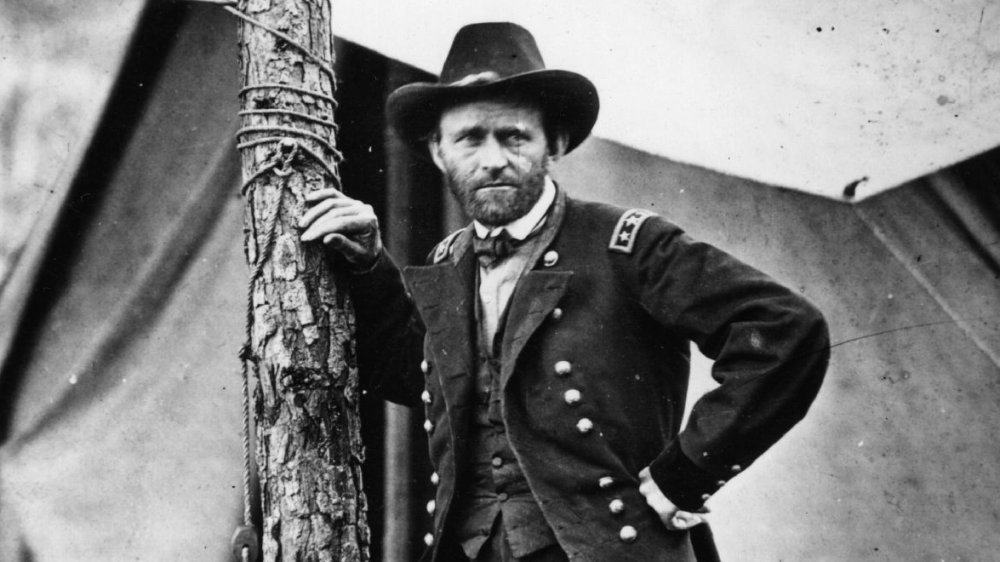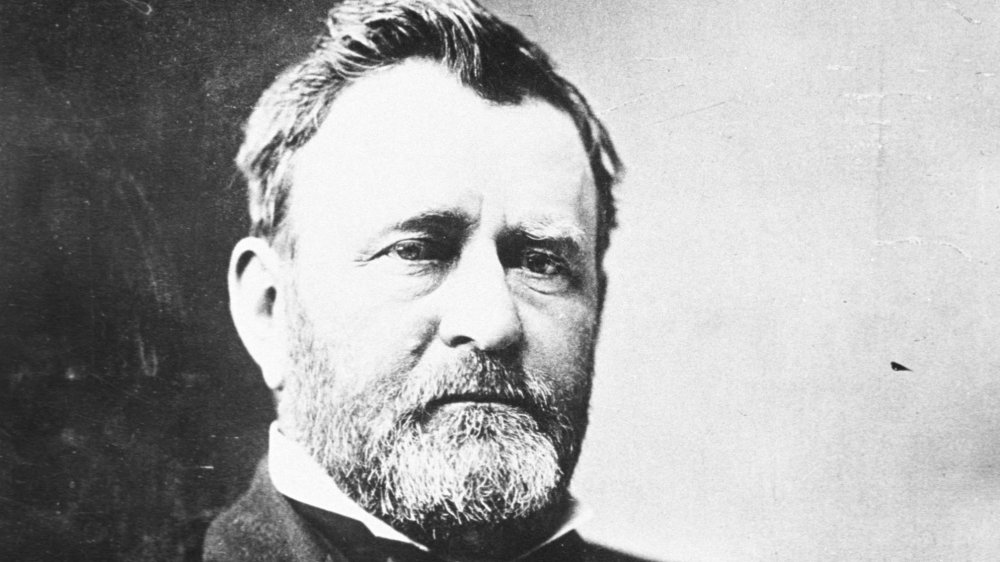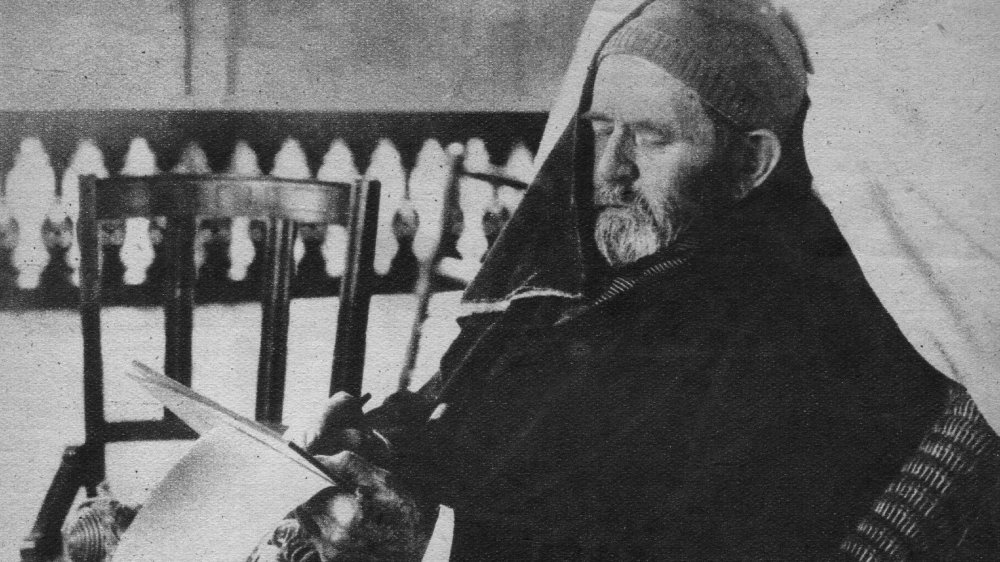The Scandals That Plagued Ulysses S. Grant's Presidency
Because if you can run an army and win a war, you can run a country. That's some of the thinking that got George Washington elected as the first President of the United States, and re-elected four years later. Others have risen to the Office of President on the coattails of distinguished military service. Perhaps most recently (so far), President Dwight Eisenhower served two terms in the 1950s after effectively winning World War II in Europe. Andrew Jackson, Zachary Taylor — it wasn't without precedent.
As PBS tells us, President Ulysses S. Grant's claim to fame was taking command of the Union forces during the American Civil War, personally chosen by President Abraham Lincoln to defeat the Confederacy. Defeat them he did, writing the terms of surrender himself, signed by the South's General Robert E. Lee. Grant was elected after the turbulent administration of President Andrew Johnson, who had the muddy distinction of being impeached but not convicted. Grant had no experience holding elected political office prior to his election, so besides the "we need a hero" vote there might have been a "we don't need another career politician" vote working in his favor. Nearly every assessment of Grant's character presents him as a sterling individual of high personal integrity. That integrity was not often shared by the men with which he surrounded himself; he was a good man, but a terrible judge of character, according to Biography.
No one questioned Grant's character. His staff was another matter
He managed two terms in office, serving from 1869-1877, but those eight years are often viewed as some of the most scandal-plagued in American history (again, so far). As Joan Waugh, writing for the Miller Center at the University of Virginia tells us, his own brother-in-law tried to manipulate him into unwittingly assisting gold speculators into cornering the market. The plot failed, but the countermeasures Grant took are generally seen as causing a wide-spread economic collapse that ruined investors and businesses nation-wide. The roots of the Credit Mobilier scandal predated Grant: railroads overcharging for government contracts, then paying off investigators. Even Grant's first vice-president was tainted and removed from the re-election ticket. Another financial panic occurred in 1873, at least in part because of railroad financiers, and a nationwide economic depression resulted.
Midwest distillers were discovered cheating the government out of tax money with the help of crooked federal agents. Grant's personal secretary was implicated in that one. Rampant theft and corruption were uncovered among those who were supposed to be providing assistance to Native Americans on their reservations. It was eight years of one thing after another.
He wrote his memoirs as he died of throat cancer
To his credit, Grant endeavored to accomplish good things. He worked hard to establish a Civil Service Commission, which would take patronage out of government hires, though that effort was defeated by Congress through lack of funding. He also worked hard for the recently freed African Americans, establishing the Justice Department and tasking it with going after the Klan. He appointed the first actual Native American to serve as Commissioner of Indian Affairs.
After he left office, Grant had the misfortune to once again trust entirely the wrong people. He became involved with an investment firm with his son. But another partner embezzled and the company failed, taking Grant's life savings with it. The author Mark Twain actually came to his rescue with an offer to publish Grant's memoirs. Written as the general was dying, painfully, of throat cancer, the book was a best-seller. He died shortly after completion, but the royalties — about $10 million in 2020 money — made sure that the needs of his widow and family were met.
In his farewell speech to Congress, according to Mental Floss, President Grant said, "It was my fortune, or misfortune, to be called to the office of Chief Executive without any previous political training." It showed. Although he is now regarded more highly than in years past, Grant's presidency is still remembered more for what it wasn't than for what it was.


